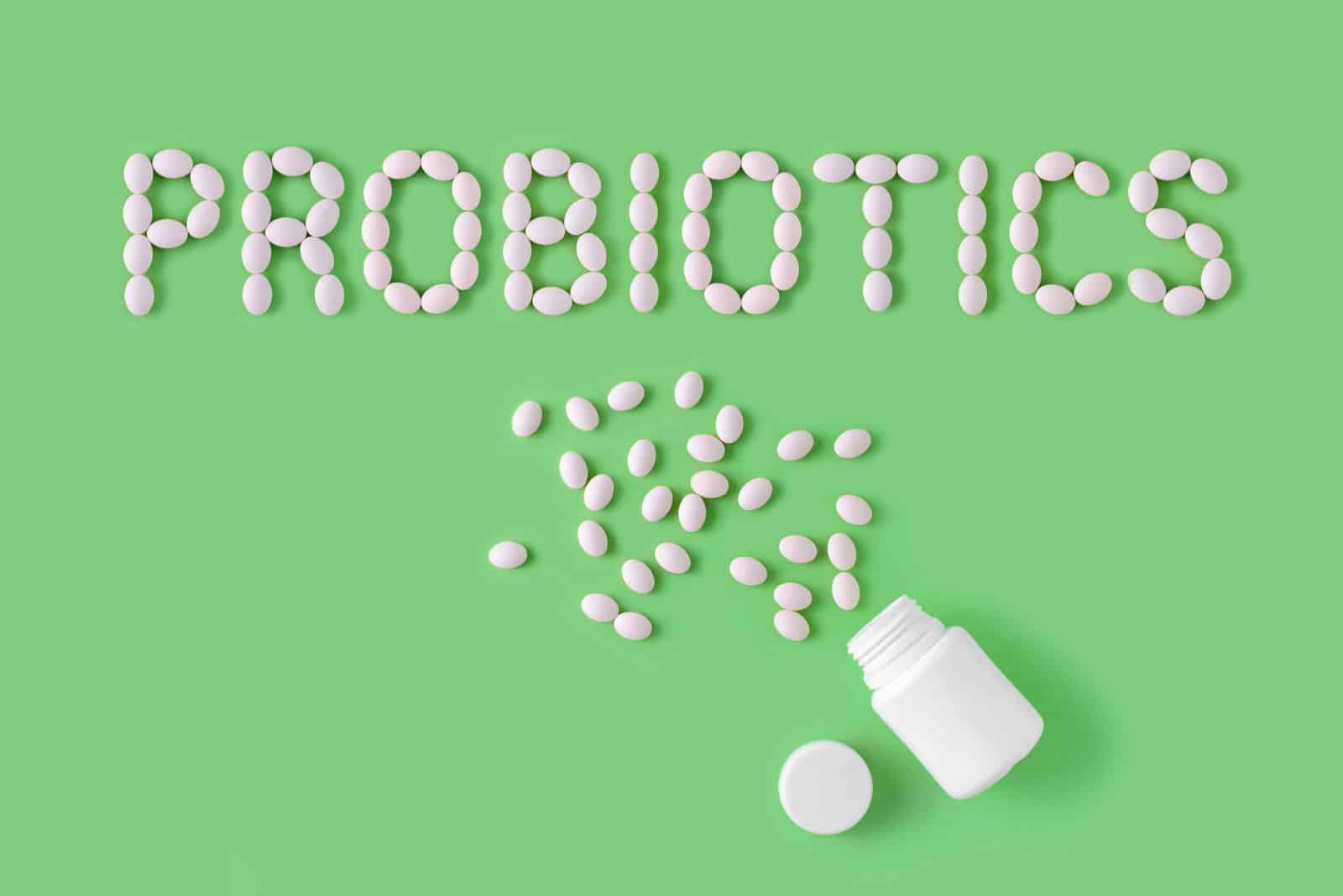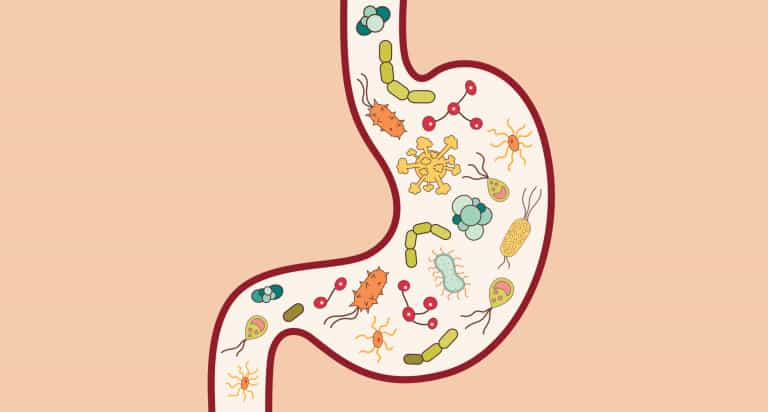Can long term use of probiotics be harmful?
By Abby Courtenay (Registered Dietitian)
The sheer number of probiotics available on the market can feel overwhelming for anyone. How on earth are we supposed to know which side effects we should watch for and who should avoid probiotics? We’ve got you covered. This article will cover the A to Z of probiotic use, helping you feel comfortable and confident in your choice next time you head to the store.
First things first, what is a probiotic?
Probiotics are defined as “live microorganisms which when administered in adequate amounts confer a health benefit on the host.”
These microorganisms consist mainly of bacteria, but also include some forms of yeast. Naturally found in certain fermented foods like sauerkraut, yoghurt, kefir, kimchi or tempeh, and can be added to other food products. They’re also available as a dietary supplement. It’s important to remember that not all foods and supplements labelled as ‘probiotic’ have proven health benefits. It all boils down to the strain and the dosage.
How do I know what strain is in my supplement?
Probiotics are identified by the bacteria and yeast taxonomy.
We will often find the following details on the probiotic:
- Genus i.e. Lactobacillus
- Species i.e. Rhamnosus
- Strain i.e. GG
This information is important to know because probiotics help us specifically, and so taking the wrong kind may not have the positive health effect we are looking for. You can read about all the various strains and health effects here. The genus Lactobacillus and Bifidobacterium are the most commonly consumed and studied probiotics.
How much probiotic should I be taking?
For this article, let’s focus on probiotic supplements. These products have very specific and measured amounts in each dose. We measure probiotics in colony forming units (CFU). This shows the number of viable cells in the product. Most probiotic supplements contain between 1-10 billion CFUs per dose, but some products can contain up to 50 billion! More is not always better. Having a higher CFU does not mean that it will have enhanced health benefits. It’s not possible to state a general dose for all supplements, as the science has not identified the most effective levels.
Labelling regulation in the United States only requires manufacturers to list the total weight of the microorganisms on the Supplement Facts. This weight comprises both live and dead microorganisms. A dead microorganism definitely won’t contribute to the viability of the product. However, some manufacturer’s voluntarily disclose the number of CFUs on the label with the total microorganism weight.
Pro-tip: Check the label to ensure the number of CFUs was listed at the end of the product’s shelf life and not ‘at the time of manufacturing’. Some of the live organisms may die during their shelf life.
Probiotics for healthy individuals
There are currently no recommendations for (or against) using probiotics for any period for healthy people. Many of the probiotics that we have derived from foods or from the microorganisms that colonize healthy gastrointestinal tracts have a long history of safe use.
Common probiotic species like Lactobacillus species (acidophilus, casei, fermentum, gasseri, johnsonii, paracasei, plantarum, rhamnosus, and salivarius) and Bifidobacterium species (adolescentis, animalis, bifidum, breve, and longum) are unlikely to cause harm.
Probiotics work by adding beneficial microorganisms to your existing microbiome. This can either increase the diversity or quantity of microorganisms. This is useful if you have taken antibiotics or if your diet and lifestyle do not support optimal gut health. Probiotics may help ‘rebuild’ an ailing microbiome. We must be careful not to only rely on probiotics to do this and can adjust our diet and lifestyle to maintain good gut health. A healthy microbiome and healthy food choices work synergistically to prevent disease and help us feel amazing!
Probiotic side effects
Some side effects of probiotics are gassiness and bloating. Remember that probiotics are live microorganisms you are adding to your current microbiome. One function of your microbiome is to ferment undigested fiber. More microorganisms produce more gas. Most individuals report this as a minor side effect. To reduce the chances of bloating, start with a small dosage and move to the full dosage over a period.
Can probiotics cause more harm than good?
There have been a few cases in people who are severely ill or immunocompromised. These individuals experienced side effects that were linked to the use of probiotics. Some of these serious side effects were bacteremia, fungemia (bacteria or fungi in the blood), or an infection that has subsequently resulted in a severe illness. Although these cases were reported, they were not confirmed that the specific strain of probiotic used was the direct cause of the infection.
It’s also been noted that patients with an indwelling venous catheter (a permanent port used for a variety of conditions like chemotherapy for cancer treatment or hemodialysis for kidney failure) should exercise caution regarding taking probiotics. Not only are these patients potentially immunocompromised, but there have been some cases of infection that have been linked to environmental exposure. This may happen if the probiotic powder contaminates the catheter tip and enters the bloodstream.
If you have a food allergy, you should always remember to read the label for any supplement that you decide to take, especially for probiotics. Some probiotics may be contaminated with cow’s milk, egg and/ or soy proteins and unless the label explicitly states that the product is free from these allergens, avoid them. There have been a few rare cases where patients have experienced an anaphylactic response that has been traced back to allergens found in the probiotic that was not declared on the label.
The bottom line is that if you are immunocompromised or have a serious underlying condition, talk with your health care provider before taking probiotics or other supplements. If you have food allergies, always double check the supplement label.
Is it safe to take probiotics daily?
If you are in good general health, taking commercially available probiotics everyday will most likely not cause you any harm. We know certain strains can provide relief for symptoms in specific conditions, but what we don’t know is if you will have any beneficial health effects if you don’t suffer from any of these conditions.
How long is it safe to take probiotics?
There is no evidence to show that taking probiotics for a prolonged period is detrimental to your health. If you feel it is offering you a benefit, and you are healthy, you can take them for as long as you want.
What happens when you stop taking probiotics?
The effect of stopping your probiotic will depend on if your microbiome was sufficiently rebuilt (if you were taking antibiotics/ if there was dysbiosis) and if your diet and lifestyle are conducive to a healthy gut. If you consume a wide variety of prebiotics (or microbiome fertilizer) then it is possible that your microbiome can continue to thrive in the absence of probiotics.
Conclusion
There are literally millions of people around the world that are currently taking probiotics. The reported number of infections linked back to them is negligible.
If you are in good health and think that you have an unbalanced microbiome, consider taking a probiotic, but also take some time to address your diet and lifestyle. The aim of the game is to increase the diversity of your microbiome and then maintain it through healthy habits.
References
Hill, C., Guarner, F., Reid, G., Gibson, G., Merenstein, D., Pot, B., Morelli, L., Canani, R., Flint, H., Salminen, S., Calder, P. and Sanders, M., 2014. The International Scientific Association for Probiotics and Prebiotics consensus statement on the scope and appropriate use of the term probiotic. Nature Reviews Gastroenterology & Hepatology, 11(8), pp.506-514.
Pennutrition.com. 2019. Gastrointestinal System – Probiotics – Key Practice Points. [online] Available at: <https://www.pennutrition.com/KnowledgePathway.aspx?kpid=3608&pqcatid=148&pqid=3138&kppid=3139&book=Evidence&num=1#Evidence> [Accessed 7 June 2021].
Worldgastroenterology.org. 2017. [online] Available at: <https://www.worldgastroenterology.org/UserFiles/file/guidelines/probiotics-and-prebiotics-english-2017.pdf> [Accessed 7 June 2021].
Disclaimer: While our team of medical expert writers makes every effort to convey the correct, relevant, and most up-to-date information, you should never disregard advice given to you by your medical practitioner or delay seeking medical assistance because of something you have read on Gutsify or received in correspondence from Gutsify. Please refer to our Terms and Conditions.







